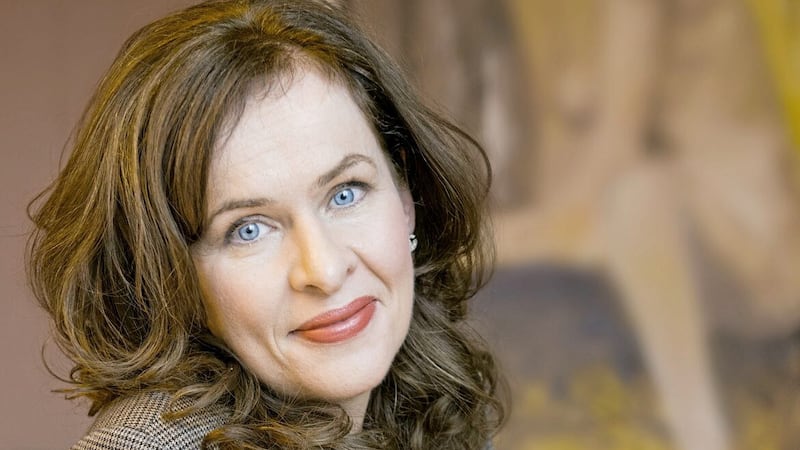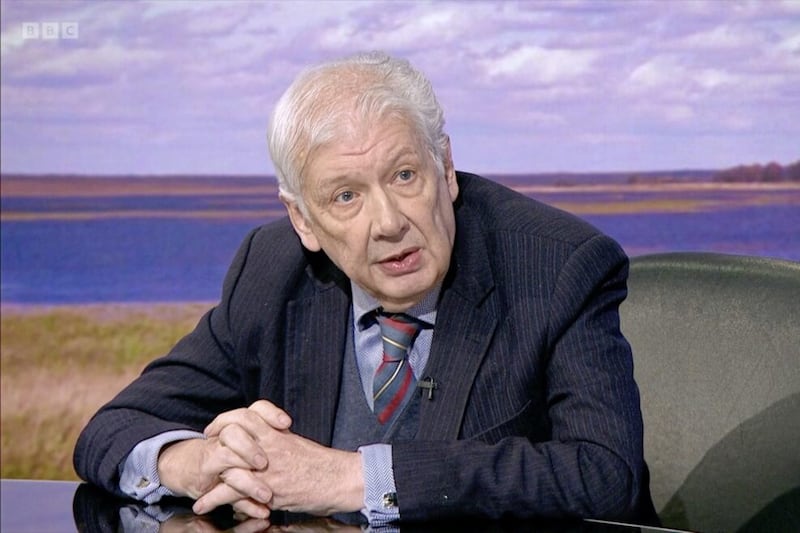WHAT is 'emergency general surgery' (EGS)? Most people don't know and why would they?
The word 'emergency' is synonymous with 'accident and emergency' services. This confusion is not helped by many in the media referring to the 'withdrawal of emergency services'.
Predictably, given its name, this area of healthcare is usually thought to be more time-critical than is in fact the case.
EGS is an umbrella term for a wide range of operations which includes abdominal conditions such as appendicitis, bowel perforations or acutely-inflamed gallbladders.
A change to EGS will not impact on the delivery of obstetric services (such as an emergency caesarean section) and similarly is unlikely to affect the emergency department management of farming accidents, heart attacks, strokes and many aspects of acute care.
The debacle around the Western Trust's proposed 'temporary' suspension of EGS at the South West Acute Hospital (SWAH) in Enniskillen and current public consultation could serve as a case study on how not to manage transformation.
The mixed messaging, misinformation, confusion and scaremongering about the proposed changes in SWAH has damaged faith in the Western Trust and the wider management of health and social care. Why has it gone so badly wrong?
A clinician-led review of EGS in NI published in June 2022 recommended a reshaping of services.
This report concluded that having EGS spread across a large number of sites in the north had resulted in a suboptimal service. Ideally it should be centralised in bigger hospitals, with planned, elective activity taking place where possible on other identified sites.
Logistically it is just not possible to provide some specialist services on multiple hospital sites for a population of 1.9 million. Very small numbers of consultants covering a 24/7 rota in multiple locations is punishing and ultimately unsustainable.
As we have seen it causes major problems with the recruitment and retention of surgeons and teams. Invariably the service ends up being reliant on temporary locum doctors, which is expensive and can lead to inconsistencies and poor continuity of care.
The current consultation is a legal requirement and should be used to fully explain what is happening and solicit feedback. This is an opportunity to level with the public, present the evidence and set out a clear rationale.
Instead, the local community are being told that this is their chance to influence the outcome. If the expert review of EGS concluded that the services must be centralised to ensure better outcomes, why would it be sensible to suggest otherwise?
The Western Trust have dodged the difficult questions, prevaricated, and presented an extremely incoherent picture. In a frankly bizarre interview, the chief executive refuted any suggestion that the outcome of this consultation was a foregone conclusion.
He told the media: "We are looking now for any ideas that come out of the public, which we might have missed."
Seriously? Healthcare leaders are really holding out for someone at home coming up with new ideas about dealing with appendicitis or pancreatitis? The whole notion is deeply unsettling.
During his halcyon days at Manchester United would we really have expected Sir Alex Ferguson to ask the fans at the Stretford End if they any ideas that might have passed him by? No, of course not. The very idea is ludicrous.
Finally within this whole sorry saga, transformation has become confused with collapse. Let's be clear, the failure to implement transformation has resulted in unplanned collapse.
The fact that EGS was not sustainable in SWAH was patently obvious even prior to last year's review. Suggesting on the one hand that the decision to withdraw EGS is due to the inability to recruit and retain staff, whilst on the other hand stating that centralising EGS is the desired objective is misleading and contradictory.
The Trust now stands accused of insufficient effort on the recruitment front. The public are demanding that they redouble their efforts to attract staff. 'Trying harder' cannot alter the hard realities of modern medicine, geography and population size.
A cynic might conclude that the suggestion that SWAH has a bright future as a centre for elective care is nothing more than a nebulous plan to mollify the population and deflect from this pig's ear. Where is the substance to this proposal? If the future of the hospital is secure why are the public not entitled to the details?
The absence of an agreed plan on the future of healthcare services in NI feeds fear about the removal of services by stealth. The Department of Health have been notable by their absence in this fiasco. Intervening only to call for 'respectful debate', the Trust has been left to get on with it.
Politicians refusing to face reality and playing to the gallery is also less than helpful. The absence of a government just adds insult to injury.
To date the management of this complex, emotive issue has been a complete omnishambles.
Knowing the sensitivities associated with reconfiguring health services, it is beyond belief that health chiefs would add another barrier to achieving transformative change. Messaging like this reinforces mistrust in the healthcare system, feeding a vicious cycle that leaves everyone worse off.
Although it has been said many times before, there is a real need to have a societal discussion about the future of health provision. Radical change is inevitable, and the public must be made aware of the reasons why.
We have witnessed the collapse of EGS at SWAH and Daisy Hill. Very soon we will see if transformation is actually possible in Northern Ireland, or if we are only capable of delivering change by collapse.








